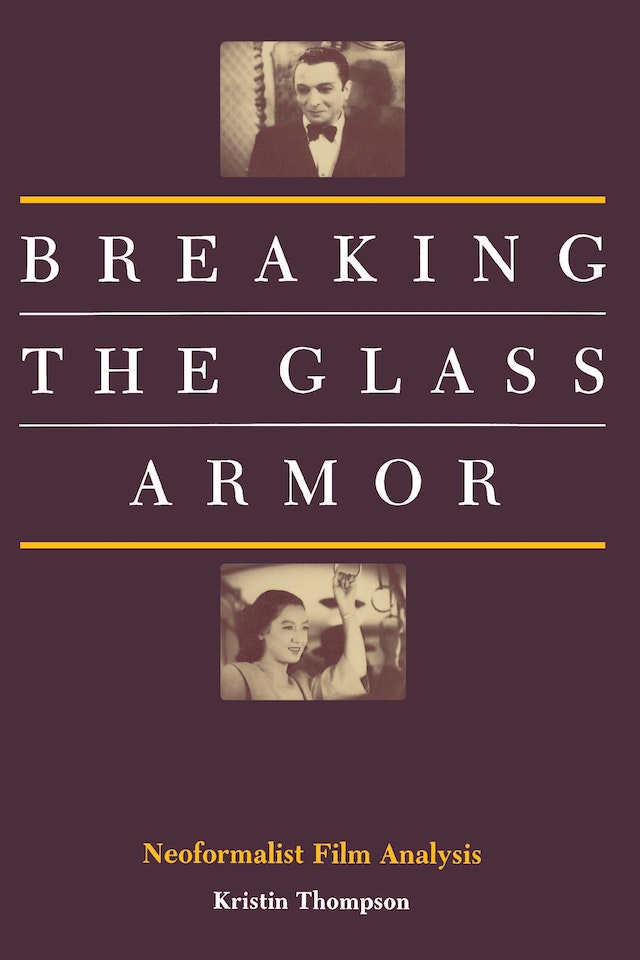Author’s Note
I wrote this before David Bordwell passed. While his wife was the one who penned this work, the two of them were an unstoppable team of film academics who instilled and imbued so much knowledge into the world. I’m devastated that David is no longer with us, but his legacy will live on, and he was writing up until the very end.
If you are a film criticism/theory nerd, Kristin Thompson and David Bordwell are perhaps the goddamn greatest film couple in history. If you’ve taken a film class, you have almost inevitably been assigned one of their texts, probably FILM ART: AN INTRODUCTION or FILM HISTORY: AN INTRODUCTION.
Bordwell and Thompson are so astute and knowledgable while also being clear and never talk down via their work. They want to impart their love of film, as well as what they’ve gleaned over the years.
Kristin Thompson’s BREAKING THE GLASS ARMOR was a fucking revelation for me. Thompson breaks down her dissection of film criticism and analysis, which mostly consists of: fucking take different approaches to discuss works as deemed necessary.
Neoformalism is derived from Russian Formalism and — more or less — can be boiled down to discussing films based on form, context, authorial intent, and how every aesthetic facet of a creative piece works towards a central thesis, and scrutinizing that requires separate analytical approaches.
Thompson puts it this way:
“The aim of the formalist method, or at least one of its aims, is not to explain the work, but to call attention to it, to restore that ‘orientation towards form’ which is characteristic of a work of art.”
[…]
“But most important, neoformalism treats audience response as a matter of education about and awareness of norms, not as a matter of passive acceptance of norms imposed by the makers of popular films.”
BREAKING THE GLASS ARMOR, pg. 32
Does neoformalist analysis always work? No, no it does not, but canny viewers can still suss out a work’s contextual manifesto, and are able to point at how almost every facet of a work bolsters the collective voice.
(I’ll note that the film teacher that assigned this text also imbued in me the idea that no one sets out to make a bad film. The next time you want to rip a film a new one? Please keep that in mind. Be gracious with your criticism!)
BREAKING THE GLASS ARMOR dissects a number of classic films, all films that I absolutely love, and some that so few have seen: Godard’s vastly underseen TOUT VA BIEN, which is a fucking marvel of the complexities of communications and so, so very Brechtian; Tati’s PLAYTIME, which is perhaps the most astoundingly amusing and well-blocked non-silent-but-silent film ever; the nebulous nature and unreliable narrative of the film adaptation of LAURA from Otto Preminger; Ozu’s steadfast camerawork for LATE SPRING.
As noted above, this is a very accessible and thoughtful and insightful work, one that doesn’t rely of the impenetrable nature of academia. It made me see film and artistic works in a completely way, and I can’t thank Thompson enough for penning this work.
You can buy it via Princeton University Press!
